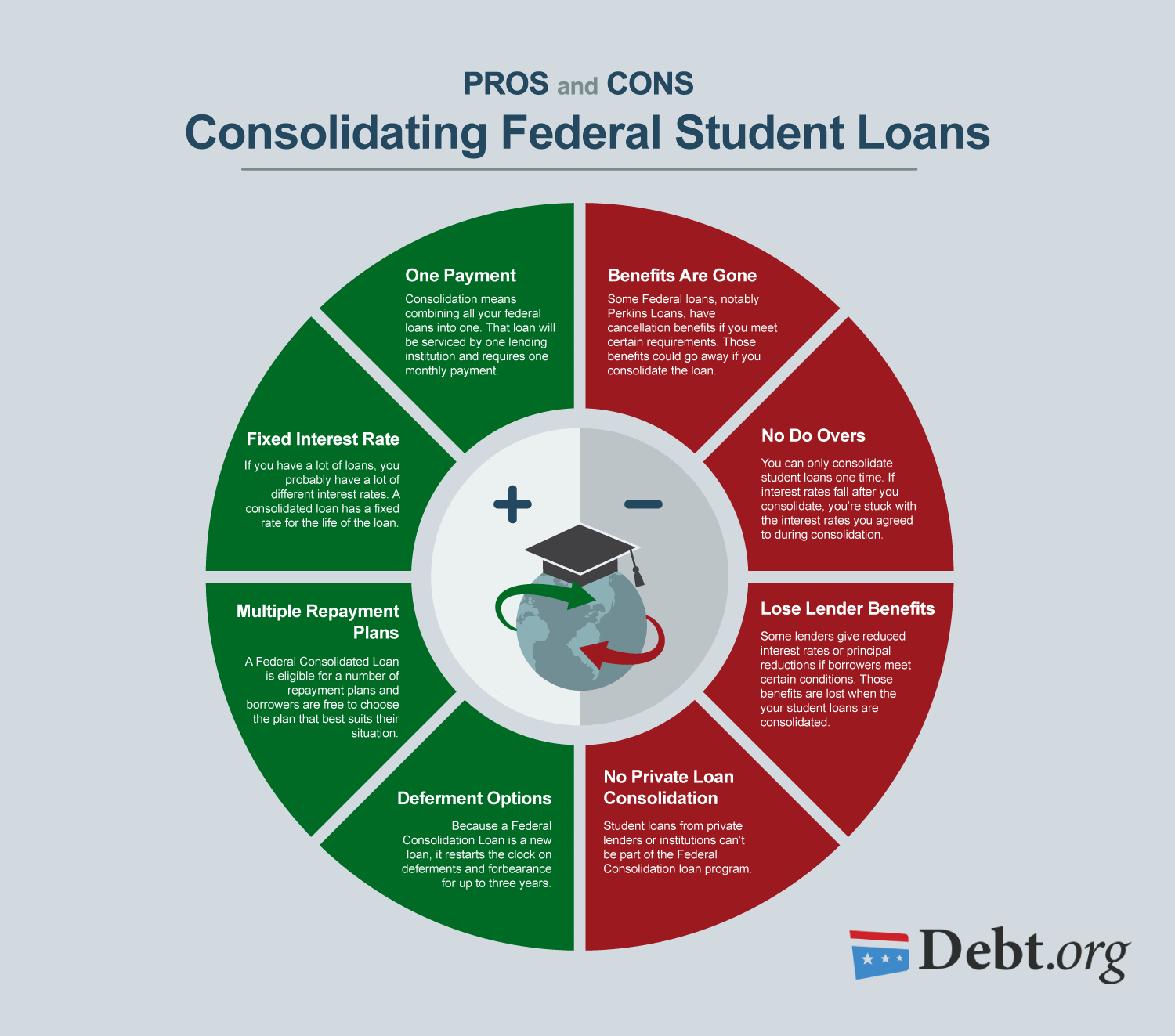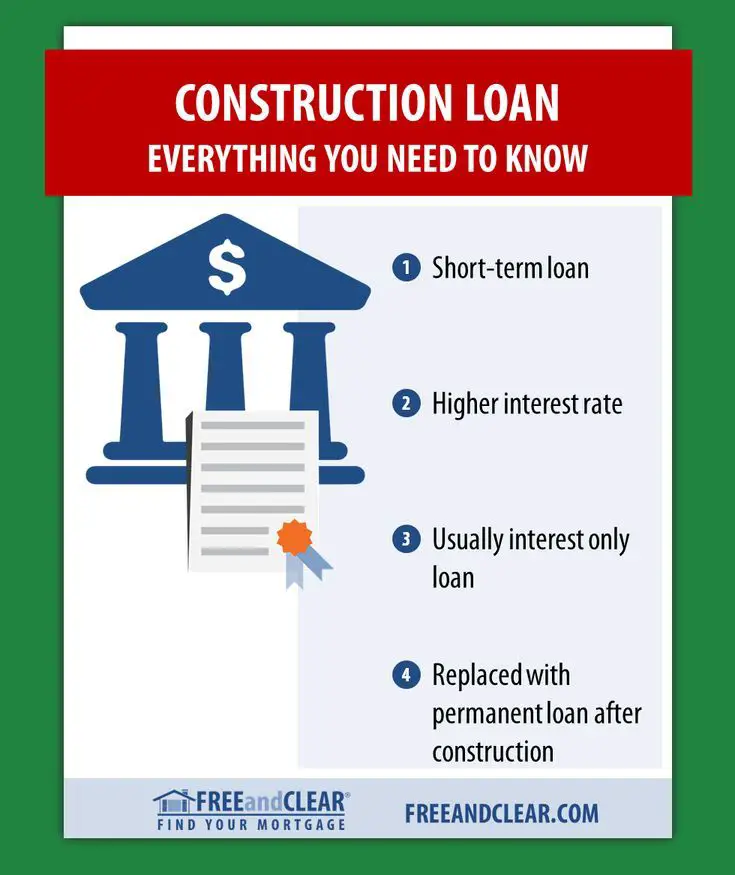When It Makes Sense To Refinance Federal Student Loans
Refinancing federal loans with a private lender makes little sense for most borrowers. You might score a lower interest rate if you have a good credit score or a cosigner who does. A better rate will reduce your total interest, helping you pay off the loans faster.
But refinancing comes at a cost: youâll lose federal protections like student loan forgiveness, income-based repayment options, deferments, and so on.
In my years as a student loan lawyer, Iâve seen many people regret refinancing their federal loans â especially when they learn the Biden administration has wiped out loans for other federal student loan borrowers who attended their school or temporarily expanded the PSLF Program. Read more about borrower defense to repayment and the Limited PSLF Waiver.
In my experience, student loan refinancing makes sense if you have a strong, stable financial situation and owe less than 1.5 times your salary. Those factors give you a reasonable shot at paying off the loan balance.
But if you donât have savings, lack job security, or owe a lot more than you earn each year, keeping up with the student loan payments after refinancing can prove challenging. You may find yourself stretched thin with no margin for error.
Learn More:Will Refinanced Student Loans Be Forgiven?
Plans For Repayment Driven By Federal Income
Its a good idea to look into alternatives if you realize that you cant afford your payments under the usual repayment plan.
Payments under an income-based scheme are capped at no more than 10% or 15% of your discretionary income the portion of your AGI above the poverty line. If your AGI is $40,000 and the federal poverty threshold is $25,000, your discretionary income is $15,000.
With income-based repayment arrangements, the debt is written off if it isnt paid in full by the end of the 20 or 25-year period.
Four income-based options are available through the federal student loan program:
Should I Refinance My Student Loans
To know who refinances student loans and whether you should too, the first step is to identify your types of student loans. Student loans come in two main varieties: federal and private.
Federal student loans are backed by the U.S. governments Department of Education. These are the loans that borrowers apply for using the Free Application for Federal Student Aid form. Private loans, on the other hand, are obtained through a bank, credit union, or other lender, and these loans are not backed by the U.S. government.
Some banks are only able to refinance federal loans, and some are able to refinance both federal and private loans. Always be sure to ask whether a student loan refinancing company can refinance the types of loans that you currently have. Next, use that information to ask yourself the following questions:
1. Am I planning on using a student loan forgiveness program?Because refinancing is the process of paying off your existing loans with a new, private loan, you will lose any access to the programs offered by federal loan programs, such as student loan forgiveness or income-driven repayment.If you are currently using an income-driven repayment plan and working towards student loan forgiveness, youll probably want to think twice before refinancing your federal student loans. And only the federal government offers forgiveness programs to graduates who are working in certain areas of public service.
2. Am I currently using an income-driven repayment plan?
You May Like: How To Do Business With The Government
When Should You Refinance Government Loans
Reconsider refinancing federal student loans right now.
Even into next year, only refinance government loans if you’re comfortable with the risks involved. If you’re OK giving up federal loan benefits, refinancing student loans could offer long-term savings on high-interest federal loans.
For example, say you owed $30,000 with a 7% interest rate and 10 years on your repayment term. Refinancing at a 3% interest rate roughly the best you could expect would save you close to $7,000.
To qualify, youll typically need good credit and a debt-to-income ratio less than 50%. If you wait to refinance, work to exceed those benchmarks to get the best deal possible when you do apply.
Pro: You Can Transfer Parent Loans To A Child

If youre a parent that took out parent PLUS loans to pay for your childs undergraduate education, there is a major advantage to refinancing your loans: You can transfer them to your child. Some refinancing lenders allow your child to refinance the loans and take ownership of the debt. If your child is approved, your debt will be paid off and youll no longer be responsible for its repayment.
Recommended Reading: Part Time Government Jobs No Experience
Determine Whether Your Loans Are Worth Refinancing
While refinancing can result in huge savings for many people, its important to ask a few questions before you begin the process to make sure its right for you. If your interest rate is lower than what you could get through a new lender, for example, it may be better for you to wait to refinance until rates change or your credit score improves, enabling you to save money with a lower rate.
You may want to refinance if:
- You have a cosigner and want to release them from your loans by refinancing on your own, without a cosigner
- You have a credit score of 650 or higher and refinancing would enable you to reduce your interest rate and save money over time
- You have multiple student loans and want to bundle them into one single monthly payment
- You want to move your loans to a different company for another reason
- You want a lower monthly payment1
Should you refinance federal loans?
Whether your loans are through credit unions, other private lenders, or the federal government, you can refinance up to your total loan amount across lenders. Like private student loans, federal loans have interest rates that may be higher than what youre able to find by refinancing with a new loan from a different loan servicer.
Will You Be Working In Public Service
If YES, then you should know:After completing 10 years of public service work, while also making 120 qualifying and on-time, monthly payments as well as satisfying several other requirements, forgiveness may be granted on some or all of your remaining federal student loans through the Public Service Loan Forgiveness program. Private loans are not eligible for PSLF. Only Direct Loans qualify for the PSLF program.If NO, then you should know: Based on your expected career path, forfeiting access to Public Service Loan Forgiveness is not a factor you need to consider when deciding whether to refinance.
You May Like: Www.qlinkwireless.com/register
Don’t Miss: What Is The Interest Rate On Government Student Loans
What Types Of Loans Are Eligible
Most federal student loans are typically eligible for refinancing, including Direct Subsidized Loans, Direct Unsubsidized Loans, and Parent PLUS Loans. You can refinance all or some of your federal student loan balance into a new private loan.
Youll also need to meet the lenders other requirements, which often includes a minimum credit score and verifiable income.
Learn More: How to Refinance Your Student Loans
Con: Youre No Longer Eligible For Federal Deferment Or Forbearance
With federal student loans, you can take advantage of generous deferment or forbearance if youre experiencing financial hardships, become seriously ill or return to school. Depending on the type of forbearance or deferment you qualify for, you could postpone your payments for up to three years.
Only federal borrowers are eligible for those programs. Once you refinance, you cant utilize them. And while many refinancing lenders offer their own financial hardship programs, most arent as flexible as the federal options.
Read Also: Free Government Assistance For Home Repairs
Dont Stop Paying Your Student Loans
Dont stop sending in those payments, even if youve been pre-approved for your new loan. You dont want your new lender to see that youve missed a payment, especially not in those crucial moments as they decide whether or not to finance your new loan. This isnt to mention the late fees you could accrue. No matter how you look at it, its a good idea to stay on top of your payments.
Compare Rates Across Multiple Lenders
When it’s time to refinance your student loan debt, it pays to shop around. Most student loan refinancing lenders let you get prequalified to check your estimated interest rate and repayment terms without negatively impacting your . This means you can compare loan offers from several lenders to find the lowest possible interest rate for your situation.
If you don’t qualify for a lower student loan rate than what you’re currently paying, you might need to work on your credit score further before refinancing. You may also be able to get a better interest rate by enlisting the help of a , such as a trusted friend or relative. But keep in mind that your co-signer will be equally responsible for repaying the debt, so it’s important to have a realistic repayment plan.
Don’t Miss: Government Personnel Life Insurance Company
Why You Shouldnt Refinance
You take out a new student loan with a private lender when you refinance. The new loan pays off and replaces your existing student loans . Refinancing student loans can be an attractive option to combine and simplify student debt, to adjust loan payments or terms, and to potentially secure a lower student loan rate.
But private lenders dont offer the same protections you get with federal student loans. They wont change repayment plans or pause payments. Refinancing will also mean losing out on student loan relief offered in response to the coronavirus pandemic.
Dont Miss: Dispensary Silver City Nm
Student Loan Refinancing: Everything To Know

President Biden’s student loan forgiveness program announced in August may bring relief to millions of federal student loan borrowers. But if you have a private loan – that is, a loan you took out directly from a bank, credit union or finance company and not the government – you’re not eligible.
Don’t despair, however. You have options, including refinancing. This can help lower your monthly private student loan payment and put money back in your pocket. You can easily apply for a refinance loan right now.
To learn more about this unique financial opportunity, read on.
Don’t Miss: Los Angeles Government Jobs Entry Level
How Can I Lower My Monthly Federal Student Loan Payments
If you’re hoping to lower your monthly student loan payments, there are a few options. You can get a direct consolidation loan to extend your term and combine your payments into one, take advantage of income-driven repayment , or sign up for an extended repayment plan. You can also refinance your loans for a lower monthly payment, but that will replace your federal loans with a private loan, and you will lose access to federal programs.
Details Of Your Current Student Loan Or Loans
In order to make an informed decision about refinancing your student loans, youâll need some information about your existing loans.
- How much do you currently owe?
- What is your current interest rate?
- When is your expected payoff date?
- What is the current payment on your loan or loans?
This information will be necessary in order to calculate and compare total interest and monthly payments on your existing loans to those of refinance loan alternatives. If you donât have this information, check with your current loan servicer. You should be able to get this information by logging in to their payment website or by referencing a recent billing statement.
Once you have this information gathered, check out our Refinance Calculator to see how a Brazos Refinance Loan can help you meet your financial goals.
Read Also: What Qualifies As A Small Business For Government Contracts
Refinancing Can Help You Pay Off Debt Sooner
Refinancing your student loan debt can also help you pay off your debt sooner, saving you a significant amount of interest.
âTermâ refers to the amount of time you have to pay off your student loan. Many federal student loans begin with 10-year terms, though they may be paid back over longer periods if they have been consolidated or if theyâre above certain amounts.
Longer term loans help reduce monthly payments by dividing the amount owed into a larger number of payments. But the longer the term, the more time interest accrues on the unpaid amount, meaning youâll typically pay more over the life of the loan.
Additionally, lenders typically charge higher interest rates for longer term loans because of the increased risk to them.
Because refinancing can lower the interest rate on your student loan debt, you may be able to afford a shorter loan term. By combining the lower rate with the shorter term, you can maximize the amount of savings youâll realize through refinancing.
Shorter terms generally result in higher monthly payments, even when the interest rate is reduced, but will result in less interest paid over the life of the loan. The savings can be significant.
Do You Need To Refinance
To determine whether or not a certain individual is a good candidate for student loan refinancing and, if so, what interest rate to offer them, various variables are taken into account.
Refinancing businesses place less weight on your credit score than commercial banks do when making a decision about your application, but it still plays a role.Some businesses will even ignore your credit rating entirely. Instead, they look at your current employment status, your income or earning potential, and your liquid assets.
There are a number of things that can improve your refinancing interest rate, such as:
- Youre Good at Your Job. Companies like Earnest and SoFi consider whether you have full-time employment or full-time job offer in order to determine your rate.
- What youve put away for the future. You can qualify for a lower interest rate if you have a months worth of living expenses saved up in the bank.
- A successful past of making payments. Companies that refinance student loans do not want to observe a pattern of late or skipped payments.
- Money coming in or out. To repay your student loans and live comfortably, youll need a steady stream of money each month.
Ones capacity to refinance a loan might be hampered by a variety of circumstances and individual decisions. For the following reasons, many students are denied service by organizations that specialize in refinancing student loans:
You May Like: Government Of Canada Travel Restrictions
Can I Refinance My Federal Student Loans
It is possible to refinance federal student loans with a private lender. However, when you refinance a federal student loan into a private loan, you lose the benefits and protections that come with a federal loan, like deferment and public service-based loan forgiveness, which are worth keeping in mind. However, the new loan could mean paying less interest over the life of the loan and paying off loans sooner.
Recommended: Types of Federal Student Loans
Why Do Borrowers Refinance Their Loans
Ironically, while borrowers who refinanced their loans are now missing out on loan forgiveness, many did so in the first place to relieve money stress.
Refinancing federal student loans can be an attractive option for borrowers experiencing financial duress from trying to repay their debt. It allows borrowers to combine their monthly payments into one new monthly bill with just one lender, shorten or lengthen their loan repayment term, and, often most importantly, secure a lower interest rate than offered by the government.
The most common reason for refinancing student loans is to save money, says financial aid expert Mark Kantrowitz. If you borrowed your federal student loans several years ago, the interest rates were much higher than they are now, he says. Even with the Federal Reserve raising interest rates , interest rates on private student loans are still lower than the interest rates on federal loans were several years ago.
Federal student loan borrowers may have chosen to refinance via a private lender like a bank, credit union, or online lender.
Also Check: Federal Government Jobs No Experience
You Want To Transfer Parent Plus Loans To Your Child
If you have parent PLUS loans, refinancing your debt can be a wise decision. If your child is financially stable and able to afford the payments, they can take over the loans and remove your obligation to repay the loan. Once theyre refinanced, the loans will show up as paid in full on your credit report, making it easier for you to qualify for other forms of creditsuch as a mortgagein the future.
Is Refinancing Student Loans A Good Idea Right Now

Due to the COVID-19 pandemic, federal student loan payments and interest accrual have been paused by the CARES Act and subsequent extensions by the federal government through Dec. 31, 2022.
If you refinance your federal student loans, youll no longer be eligible for this administrative forbearance. Additionally, on Aug. 26, President Joe Biden announced broad student loan forgiveness, which will benefit millions of federal loan borrowers.
Because of this, it might be a good idea to wait before refinancing your federal loans.
Learn More:Up to $20K in Student Loan Forgiveness for Some Borrowers, and Payments Remain Paused
Also Check: How Can Citizens Participate In Government
